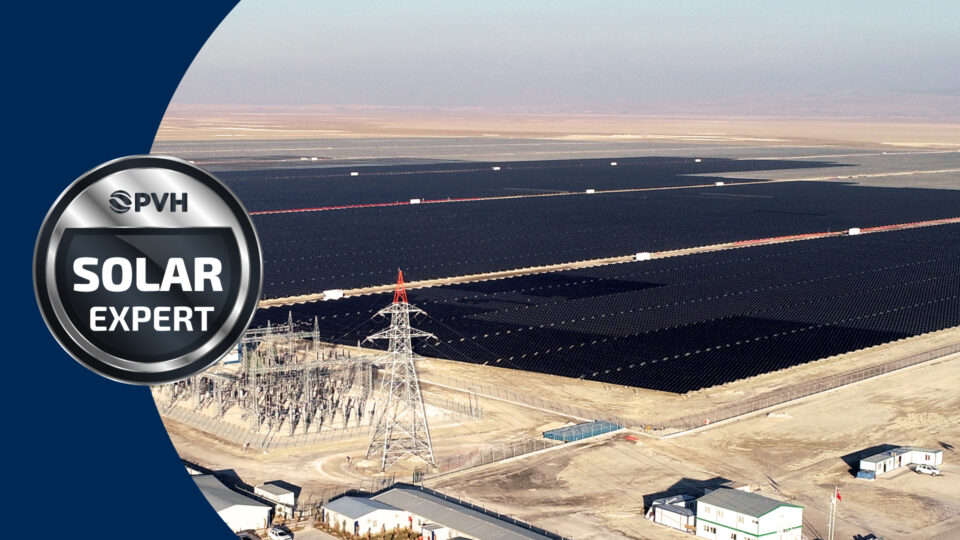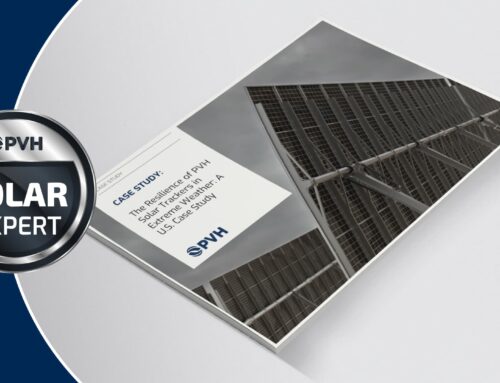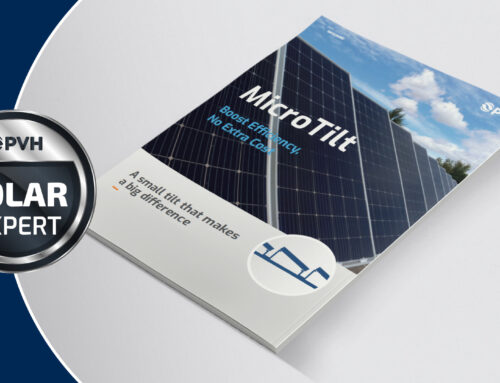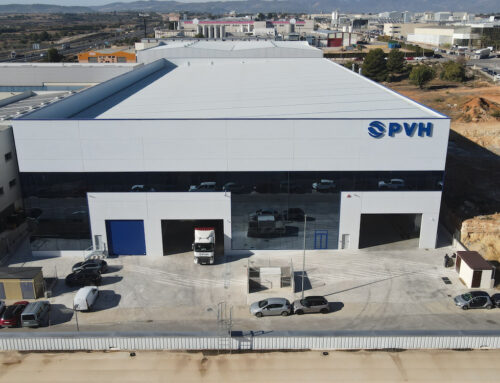PVH’s Resilient Solutions for Extreme Weather Conditions
01/10/2024

The effects of climate change are becoming increasingly evident through frequent extreme weather events such as storms, floods, droughts, and wildfires. As global temperatures rise, these weather-related disasters are expected to intensify, with warnings from the National Oceanic and Atmospheric Administration (NOAA) and the World Meteorological Organization (WMO) showing a significant increase in the frequency of these events. Solar energy projects, particularly large-scale installations, face substantial risks in this changing environment.
How climate change is affecting solar projects particularly in the Middle East, and which are the measures that PVH has implemented to ensure that its solar tracker systems remain resilient to these challenges?
Climate Change and Its Impact on Solar Projects in the Middle East
Leading research from PVEL, Fraunhofer, RETC, and DNV has revealed a growing trend of structural damage in large-scale solar projects, even without direct wind events. This issue spans multiple mounting manufacturers and is linked to industry-wide trends such as the use of thinner glass, larger modules, and shorter mounting rails. These trends push mounting structures to their limits, often increasing the reliance on solar panels to bear loads, adding pressure on the underlying structures.
To address these challenges, solar engineers must consider factors such as glass tempering, edge quality, and surface finish when assessing load capacities. Variability in the mechanical properties of glass from different suppliers further complicates the situation, making it crucial to have a deep understanding of material quality to ensure the safety and longevity of mounting structures.
How PVH Tests and Enhances the Durability of Solar Trackers
PVH has been proactive in addressing the challenges posed by climate change, implementing rigorous testing methods to ensure that its tracker systems are capable of withstanding harsh conditions. Here’s how PVH tests and strengthens its structures:
- Wind Tunnel Testing: PVH conducts wind tunnel tests to analyze how airflow impacts its single-axis tracker systems. These tests provide crucial insights into the stability and performance of structures under real-world wind conditions.
- Aerodynamic Stability: PVH evaluates how well its trackers withstand wind forces, identifying any potential weaknesses early.
- Structural Integrity: Tests reveal potential vulnerabilities, such as vibrations or stress points, under varying wind speeds.
- Cost Savings: By identifying issues early, PVH reduces the risk of costly failures and repairs.
- Torsional Instability Screening: Torsional instability occurs when wind forces cause a structure to twist, potentially leading to structural failure. PVH performs torsional instability screening to simulate wind loads and assess the system’s resistance to twisting.
- Objective: Identify any tendency of the structure to twist under wind loads.
- Outcome: Engineers can make necessary design adjustments to enhance stability and prevent damage.
- Aeroelastic Instability Testing: Wind-induced vibrations can resonate with a structure’s natural frequencies, causing significant damage over time. PVH uses aeroelastic instability testing to analyze this dynamic interaction and optimize designs accordingly.
- Objective: Evaluate how wind-induced vibrations affect the structure.
- Outcome: PVH optimizes the design to minimize the risk of vibrations and ensure the system’s long-term reliability.
PVH’s Resilient Solutions for Extreme Weather Conditions
PVH has developed a range of solutions to mitigate the effects of extreme weather on solar tracker systems. These solutions ensure that solar projects remain reliable and secure even in the face of increasingly unpredictable weather patterns:
- Advanced Weather Forecasting and Monitoring
- AI-Enabled Data Monitoring, Sensors, and Remote Control
- Robust Design and Engineering
- High-Quality PV Tracker Systems
- Stow and Lock Mechanisms
- Module and Tracker Compatibility
- Comprehensive Risk Assessment and Insurance
- Emergency Response Plans
- Natural Landscaping Techniques
Leading the Way in Climate-Resilient Solar Solutions
As climate change continues to escalate, the need for resilient solar energy systems becomes more pressing. PV Hardware has established itself as a leader in developing innovative solutions to protect solar trackers from the damaging effects of extreme weather. Through rigorous testing, advanced engineering, and real-time monitoring, PVH ensures that its systems are not only durable but also capable of thriving in the face of unpredictable climate conditions. For solar projects in regions like the Middle East, partnering with PVH means investing in the future, protecting your system against the ever-growing challenges posed by climate change.









